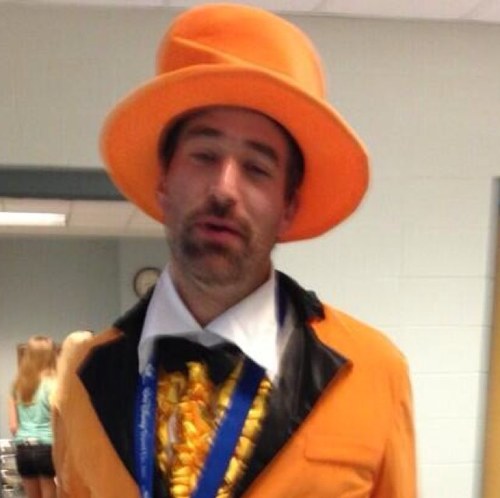The pictures attached above show my notes taken when reading through Whitman's notebook. I found a lot of his entries very interesting and it was fascinating to see the thought process of his writing. He starts his notebook with some names and addresses that are hard to make out and I struggled to connect this to the rest of the notebook as to what significance it may have. From here he goes into more poetic writing, although it seems that at some points he is just taking note of his thoughts as they come, and at other points, the scribbles seem more poetic and like he is actually writing the beginnings of a poem or several.
In these writings you can begin to see his writing style as well as some of the themes that are present throughout his poetry. The first thing I noticed after taking notes on his writing, was that he focused a lot on dual nature, the first writings being about a dialogue (two people), and the second about (two) religious platforms. This was an interesting correlation, and potentially shows that he liked the idea of comparisons or pairs to emphasis or make clearer his message. Another style that I noticed was the use of metaphorical language, specifically that in relation to ships and the seas. Furthermore he seems to talk a lot about figures of power, both people and ideas. He talks about the president (also later there are drawings that potentially represent Lincoln) and he also mentions queens of England and Spain. As far as ideas, he talks a lot in one poem about the concept of Liberty (Libertad?). As I mentioned before, the end of the notebook consists of sketches, mostly of the same man, with a beard and sometimes a top hat. Originally I thought that the drawings were of Whitman himself and then when the top hat appeared it seemed more like they could be of President Lincoln. The last drawing was a creepy one with a skull and stabbed heart making up a floating figure, I am not quite sure what this is referencing or representing, but it seemed to be a darker or more mournful side of Whitman's writing and ideas within the notebook.
AFTER READING THE INTERPRETATION:
My initial response to the interpretations and explanations for the content of Whitman's journals, was that I got a lot of what he wrote right, at least on the surface level, and that was exciting! I also was very intrigued by a lot of what the deeper explanation had to say. I found it very interesting that the dialogue poem at the beginning of the notebook was actually in reference to Lincoln and himself, further emphasizing his fascination and writing about the president. Another key point that caught my attention was the fact that it was not just scribbled handwriting that made Liberty look like Libertad, but in fact Whitman did mean to write Libertad as in the Spanish word for liberty. This highlights both his interest in the concept of liberty overall, as well as his personal interest in the importance and relation to other nations and happenings around the world as opposed to only in the US. Continuing on within this same poem about liberty and the ship, I had suspected that this may have connections to the civil war but the further notes confirmed Whitman was writing about the building tension in the nation and the predicted rough waters that the nation was about to face. Furthering my understand of Whitman's interest in the presidency as both an office and a person, I was intrigued to learn that this poem is also predicting what the president to come will face and have to deal with. This, is addition to his mentioning of Washington and the "Last War" later in the notebook, shows Whitman's fascination with history and current news, aka how he uses his poetry to talk a lot about not just abstract ideas, but actual events that have happened and are happening. The final piece of information that caught my attention was the fact that the sketches were not actually done by Whitman himself, but rather by a (possibly drunken) friend who accessed the notebook when it was passed around in a social situation. This shattered my preconception that this notebook was something private and confidential to Whitman.
I think that these notebook entries give a good overview of who Whitman was as a writer, his style, and his interests, while also holding a lot of underlying facts and messages about Whitman and his life. Looking at the entries both before and after reading the interpretations make it easier to understand all of the little details that are missed, not only in his notebook, but also in his published poetry.






